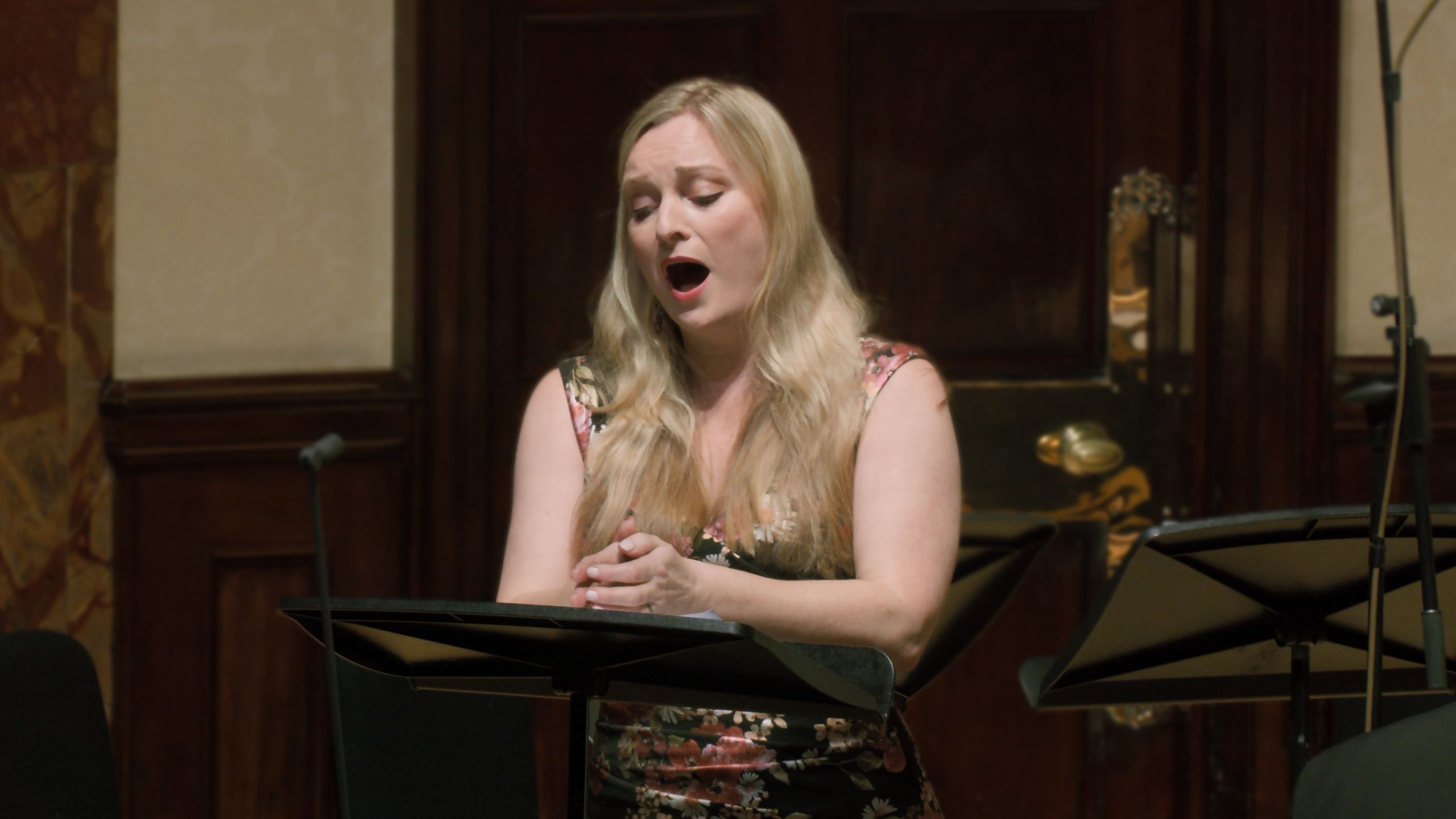An early work of Handel, this secular cantata was composed in 1707, and premiered that same year at the Palazzo Bonelli, in Rome. Wanting to write opera after his early success in Hamburg, Handel traveled to Italy; however upon arrival in Rome, Handel discovered that opera had been banned by Papal edict. In lieu of opera, Roman aristocracy hosted performances of secular cantatas, which were, for all intents and purposes, short operas without staging. Handel delved into this form, writing over 100 of these chamber cantatas for various patrons.
This particular cantata, Armida Abbandonata, was written for the patron Prince Francesco Maria Marchese Ruspoli, who was a significant patron of Handel during his years in Rome. The text is loosely based on Tasso’s epic poem Gerusalemme liberata, in which the knight Rinaldo escapes the enchanted island of the sorceress Armida, who is love with him and has trapped him there.
The cantata begins with an expository recitative, with text painting in the strings to further dramatize the scene of Armida in pursuit of Rinaldo. The aria that follows is a stunning example of Handel’s lyrical writing; the libretto pivots perspective from narration to Armida’s inner thoughts, who laments the loss of her love. Armida continues to vacillate between vulnerability and vengeance for the duration of the cantata as Handel explores her inner turmoil.
Turning from initial grief to anger, Armida summons the winds and waves to destroy Rinaldo and avenge her heartbreak. The strings respond to Armida’s dictum in whirling scales, orchestrating the wind’s chase. However at the end, surprising herself, Armida stops mid-phrase, unable to kill Rinaldo, and decides on retreat; here, the orchestra depicts her indecision with both angular leaps of strength and anger, and softer interjections of sympathy.
Beset by self-doubt and incredulity at her own capacity to love someone who has abandoned her, Armida ends the cantata with a prayer for a reprieve and an end to her affection. This lilting and lamenting Siciliana evokes the abating waves as Armida wrestles with both her love and the desire for that love to end.
Text:
Recitative
In pursuit of the fleeing warrior with whom she had long dallied lustfully in secret,
abandoned Armida
set forth;
and when she finally saw
that her golden hair,
her charms, glances, her prayers had no power to bind
her fugitive lover,
she rested her weary limbs,
and, motionless on a rocky cliff, with the calm of bitter grief, gazed at that light craft
which was taking Rinaldo away from her
and weeping and sighing
said:
Aria
Ah, cruel one, so you go away
and leave me grief-stricken, and yet you know that you alone are the delight of my heart.
How, ungrateful man, how can you steal from my heart the calm peace of your eyes, if all my love is for you?
Recitative
For you I pine away, faithless one, for you I languish, you ingrate; ah, yet you know
that only by your lovely eyes because of you my heart
is broken,
and yet you desert me, faithless lover
Accompanied Recitative
O you, horrible monsters
of the restless, stormy sea, come forth
from the most hidden depths to avenge me,
and against that cruel man grow crueller, yes, yes, yes, let it be your boast
to tear to pieces
a monster capable
of greater harshness than yours. Waves, winds, what are you doing that you do not engulf him?
Ah no, stay!
Aria
Winds, cease, yes,
do not engulf him;
it is true that he betrayed me,
but still, I adore him.
So that, cruel ones, no,
do not slay him,
it is true that he scorned me, but he is my treasured darling.
Recitative
But what am I saying?
Ah, I am raving;
and how could I love a traitor,
my unhappy heart?
Reply, oh God, reply.
Ah, you are confused,
doubtful and trembling
you would like not to love, yet you love. Break that shameful bond
which still captures your affections. What are you doing, wretched heart? Ah, you cannot break loose.
Siciliana
In my grievous distress you at least help me,
God of love!
And if you have any pity for me, see that I no longer love
that traitor.



